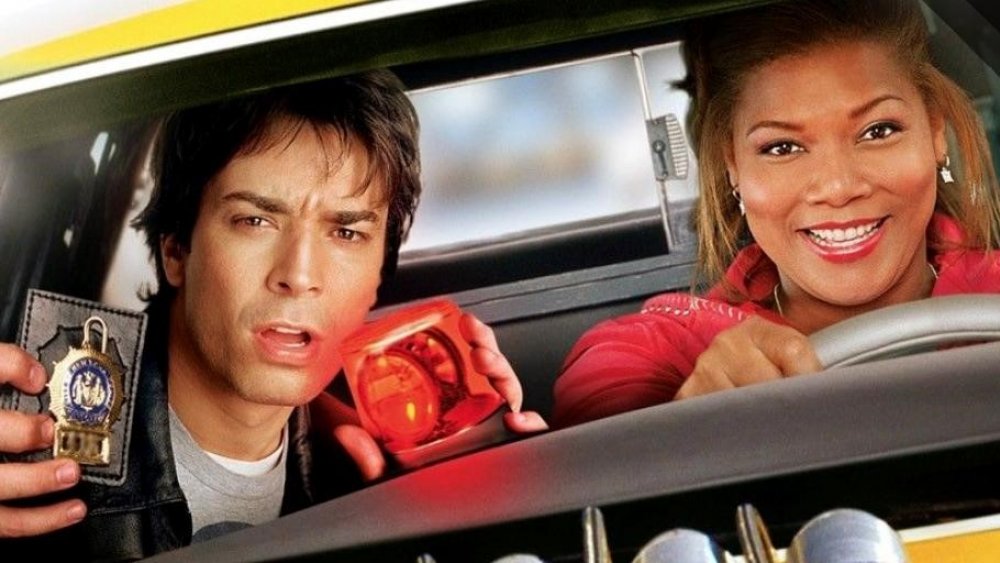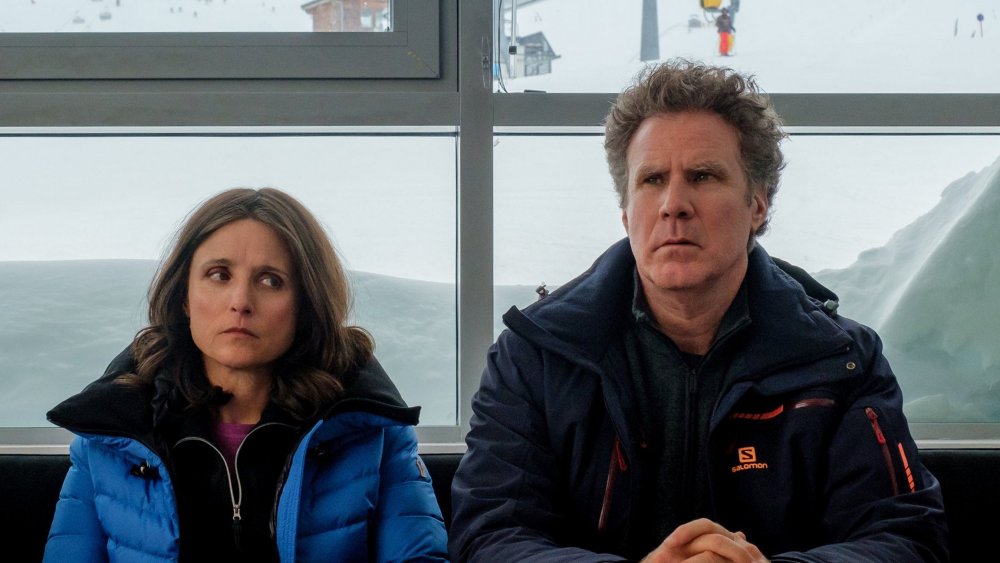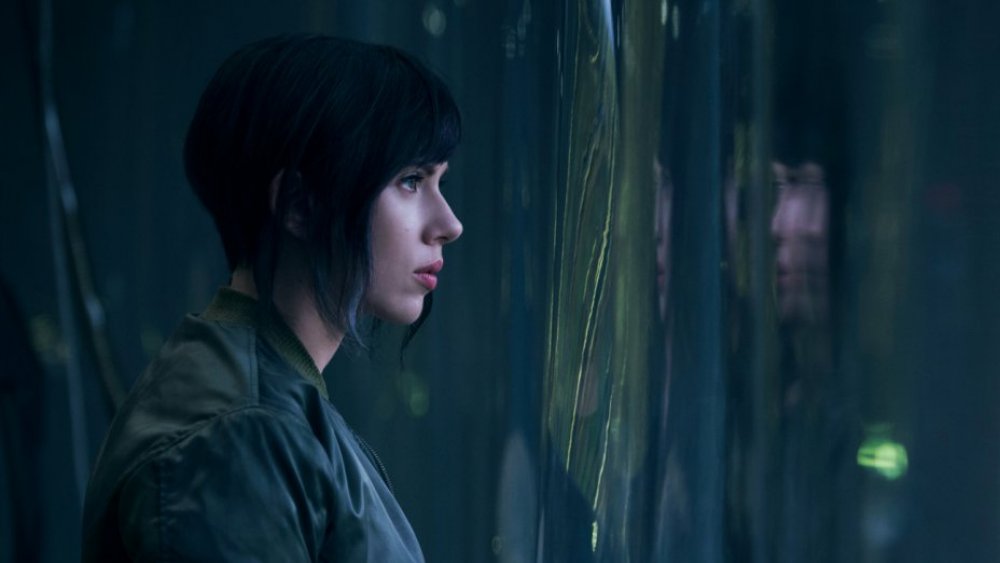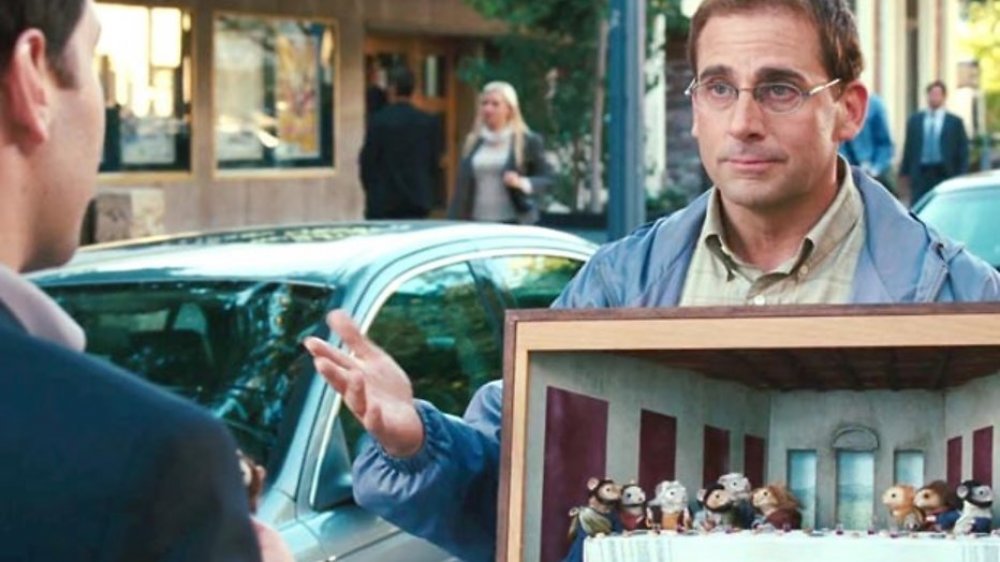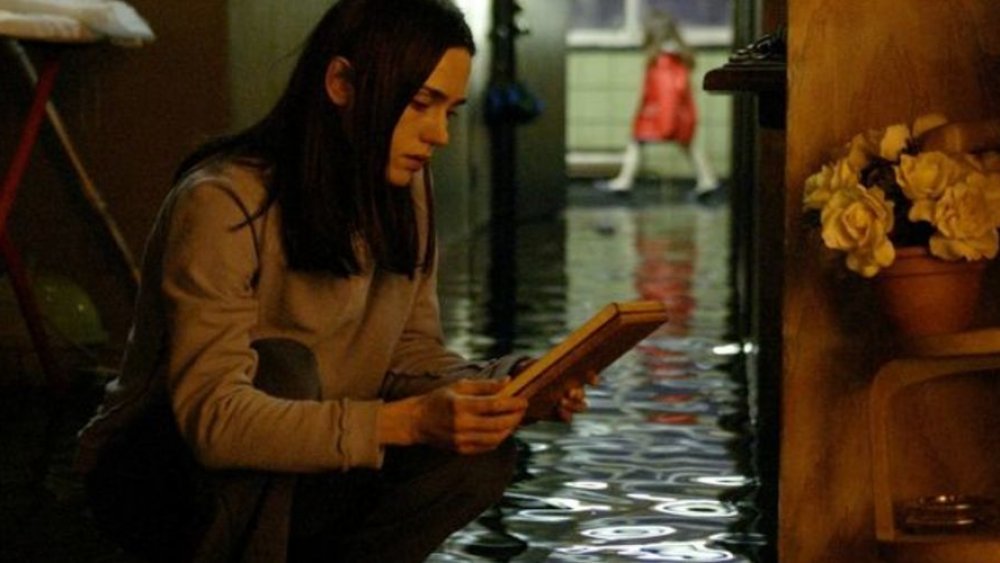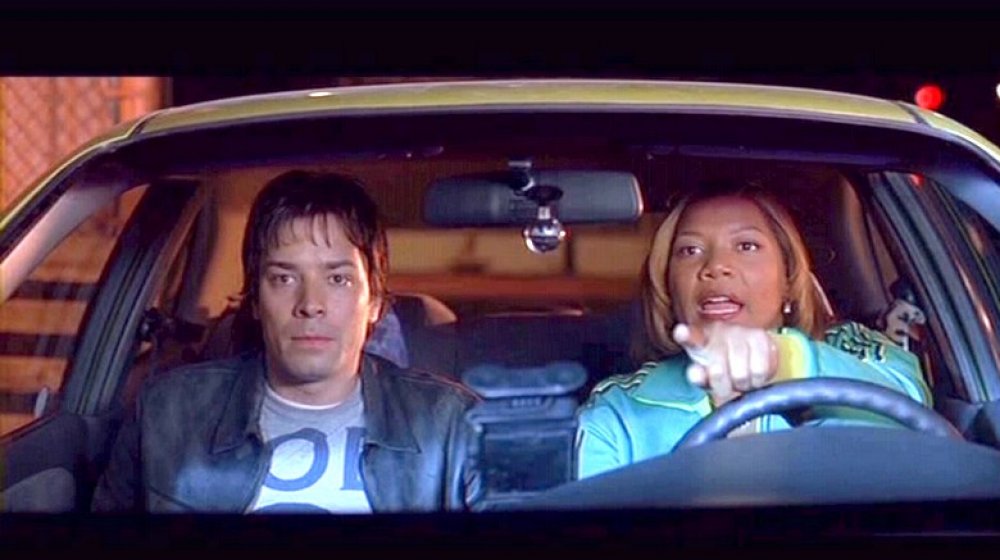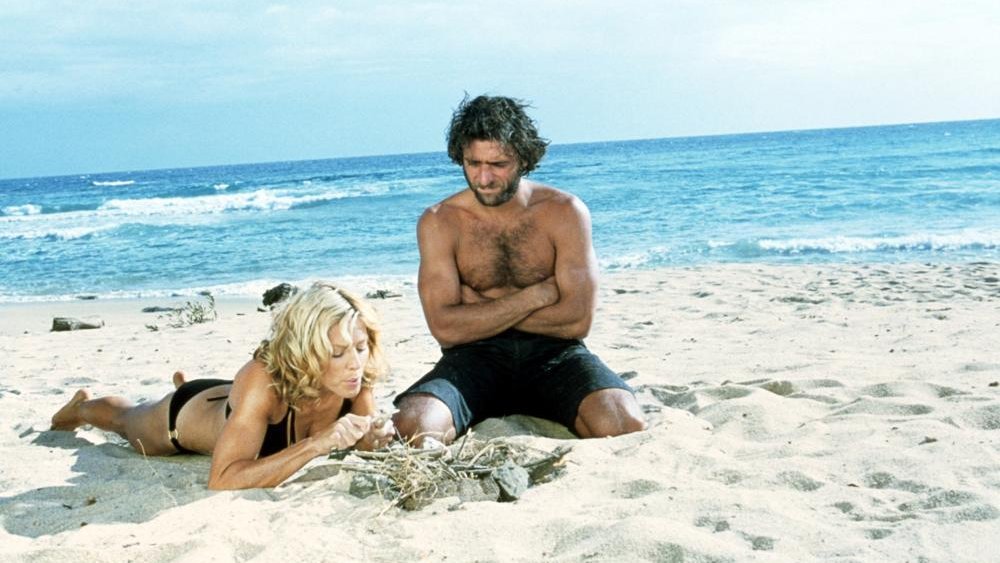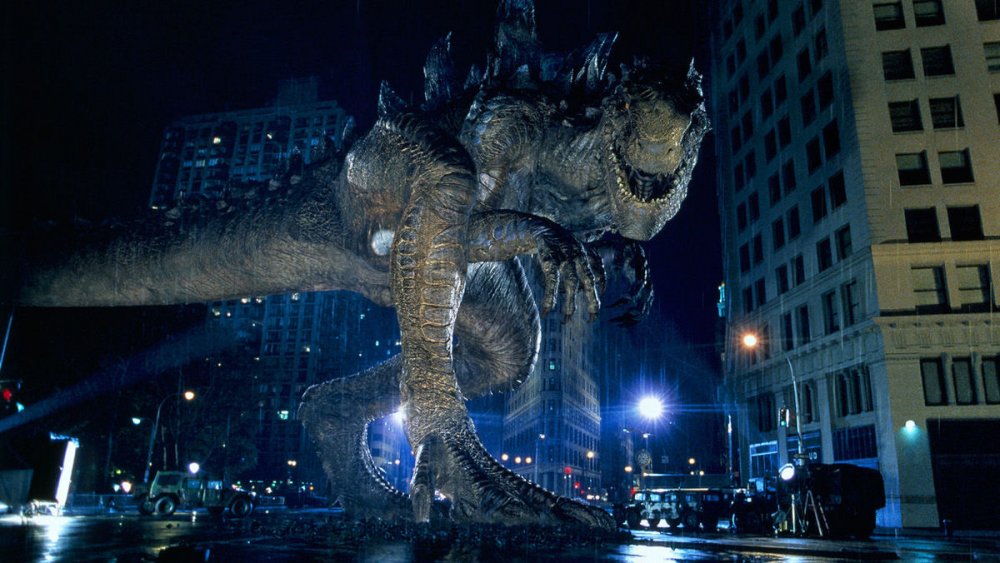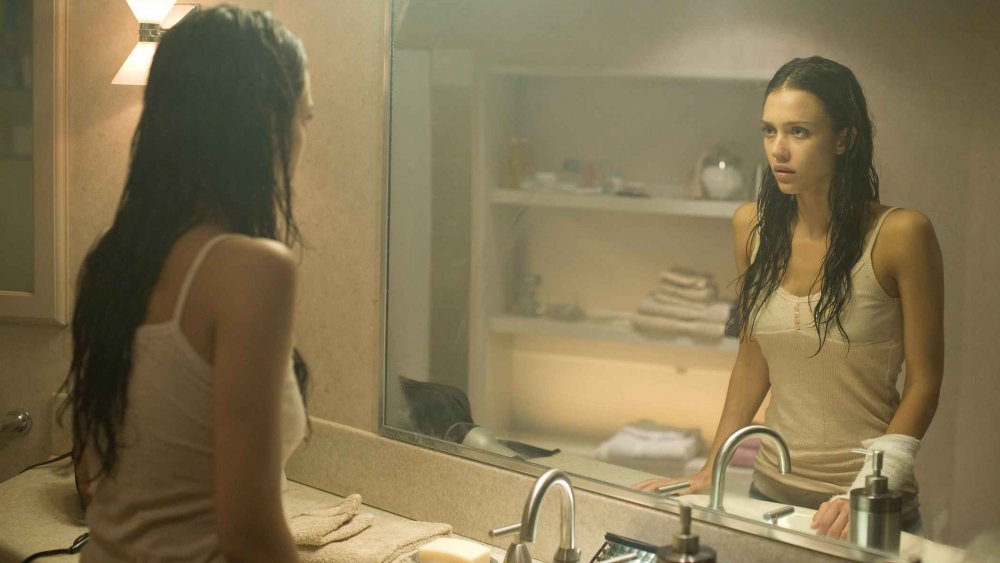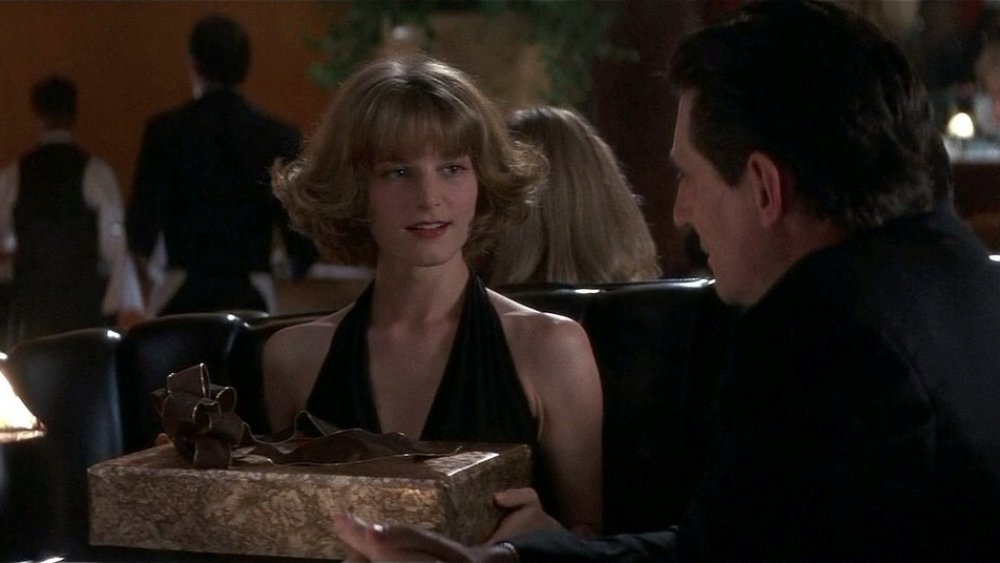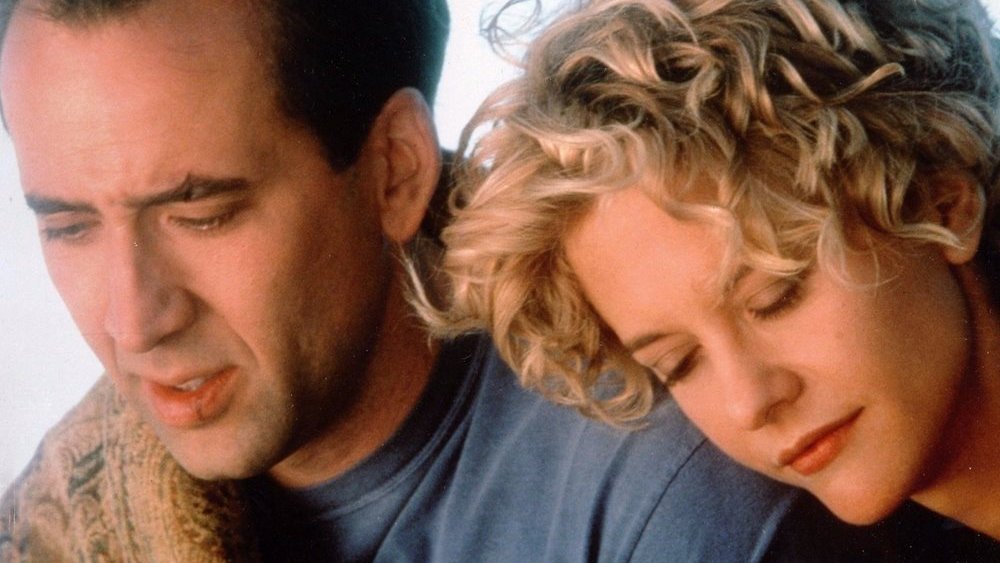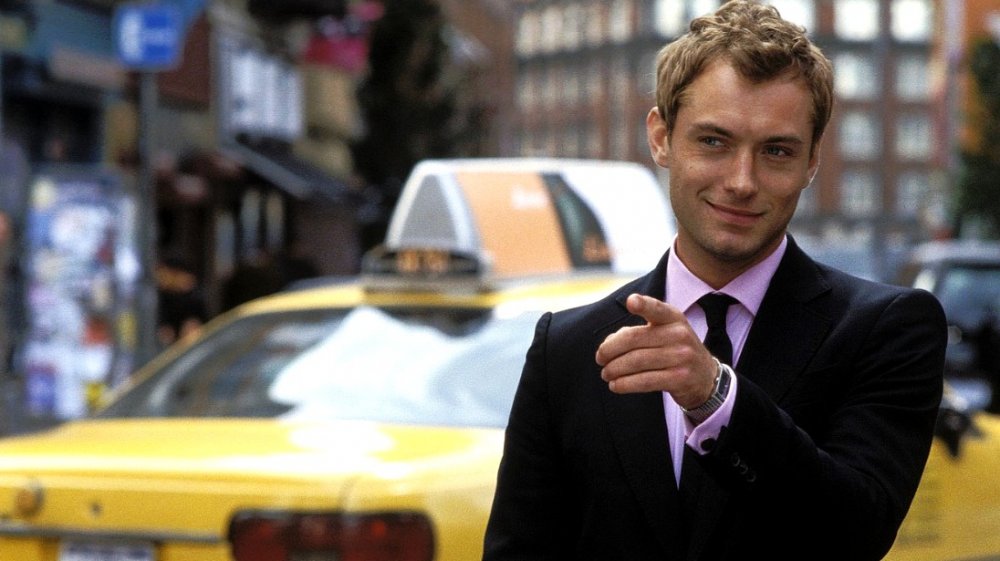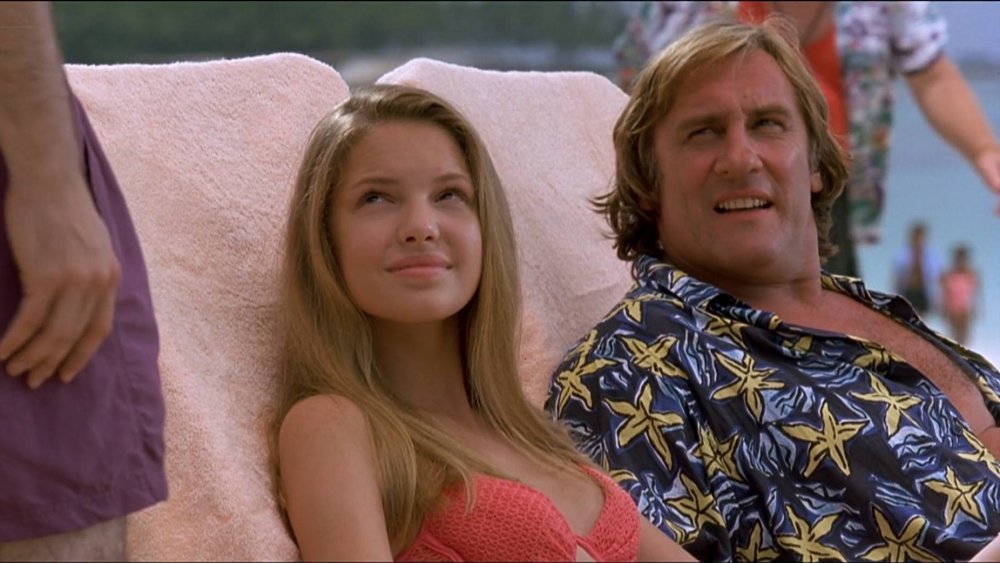Remakes Of Foreign Films That Never Should Have Happened
Shortly after Parasite became the first international film to win Best Picture at the Academy Awards, it was announced that a television series based upon the film is in the works. An exciting announcement for Bong Joon Ho fans, and a testament to the film's success — but exactly how good do remakes of foreign films ever end up being? Will a Parasite TV series actually justify its own existence?
In the film world, Hollywood remakes are a dime a dozen — but you might not clock them as such if they're adapted from foreign films. For example, did you know that 2003 heist thriller The Italian Job is actually a remake of a 1969 British caper flick of the same name? How about Eight Below, which began as the significantly less family-friendly Japanese production, Antarctica? Some of these remakes succeed, but many of them fail — sometimes spectacularly. Join us as we explore the most embarrassing, ill-conceived, and outright stupid remakes of foreign films.
Downhill
Ruben Östlund's 2014 film Force Majeure tells the story of a family caught in an avalanche while on a ski vacation in the French Alps. The main conflict arises from the fact that the dad, meant to be the "protector" of the bunch, basically abandons his wife and kids to save himself as the avalanche rolls in. Everyone is fine in the end, as the avalanche proves to be minor — but the family cannot forget what the crisis revealed about their patriarch. The rest of the movie deals with this aftermath and is an uncomfortably tense but undeniably funny look at an unhappy marriage.
While Will Ferrell and Julia Louis-Dreyfus are both comedic geniuses, even they cannot save their Force Majeure remake, 2020's Downhill. Critics excoriated it for its oversimplification of family strife, shallow writing, and lackluster wit — essentially, it bungles everything that made the 2014 original so special. What results is hollow, and best forgotten.
Ghost in the Shell
2017's Ghost in the Shell is an adaptation of the 1995 Japanese animated film of the same name, which in turn is based on the manga by Masamune Shirow. It stars Scarlett Johansson as a cybernetic human named Major Mira Killian who, after sustaining severe injuries in a terrorist attack, is given an artificial body, or "shell" to inhabit. She rises through the ranks of Section 9, a counter-terrorism bureau, only to discover that she was a test subject and must reevaluate her loyalties.
Ghost in the Shell was heavily criticized for casting Johansson, a white actress, in the role of the Major, whose name in all other iterations of the canon is Motoko Kusanagi. Though the film does introduce Kusanagi as a character and part of Johansson's storyline towards the end, it falls flat — the damage was very much done. In addition to this, Ghost in the Shell just really isn't very good. Sure, some of the visuals are interesting, but the original film, manga, and multiple anime adaptations did it first, and, to this day, better. Moreover, the original animated film's philosophical bent is entirely absent from the 2017 remake. That depth is a huge part of what made the story a hit in the first place — removing it is an unpardonable flaw.
Dinner for Schmucks
2010's Dinner for Schmucks stars Paul Rudd as a finance bro named Tim and Steve Carell as Barry, his wacky neighbor who makes dioramas featuring dead mice. Tim learns that he's up for a promotion, which he must earn in a very particular way: by bringing an eccentric guest with a unique talent to a dinner party thrown by his boss. He decides to bring Barry, but upon their arrival to the party, Tim realizes the entire premise was only ever a cruel ruse. Mockery of the guests in the order of the day — but naturally, our heroes overcome this nastiness and affirm their joyful weirdness.
The film, directed by Jay Roach of Austin Powers and Meet the Fockers fame, is a remake of 1998 French comedy Le Dîner de Cons. But where the original's humor is quirky and satirical, the remake is awkward and downright mean.That's really saying something, given Rudd's likability and Carell's infamous skill with cringe-inducing material — but even they couldn't save their flagging movie. Dinner for Schmucks is a film fit only for, well, schmucks.
Dark Water
Thanks to the success of 2002's The Ring, the early aughts saw a flood of American remakes of Japanese horror films. Some of them were genuine success stories that propelled the horror genre to towering heights ... while some of them just fell flat. Dark Water is one of the latter. This 2005 stinker stars Jennifer Connelly as a recently divorced woman plagued by supernatural interference in her new apartment. Water drips continuously, the plumbing never gets fixed, and a mysterious backpack lies unclaimed upon the building's roof, left behind by a child no one knows the fate of.
The original, a 2002 Japanese horror film of the same name, is a genuinely frightening affair. This remake, in contrast, is a tepid trek through mysteries no one really cares to solve. Most damningly of all, it's just not very scary — and when you're remaking a celebrated Japanese horror film, you'd better be scary. Alas, not all American remakes can be The Ring.
Taxi
The French comedy series Taxi, created by screenwriter and producer Luc Besson, is a delightful string of movies anyone can enjoy. The original, 1998's Taxi, tells the story of a thrill-seeking young cab driver and a clumsy policeman, who end up taking down a gang of German bank robbers. That odd couple dynamism proved to be a hit, and by 2003, two more Taxi movies had been made. A remake makes a certain amount of sense: Taxi's formula is simple, its story universal, and Hollywood never lacks for up-and-coming comic talent, ready to take a flexible premise as far as it can go. How bad could a remake be, built upon such strong comic foundations?
Pretty darn bad, as the 2004 remake starring Queen Latifah and Jimmy Fallon proves. Fallon's SNL career, then booming, had led to a string of leading roles, Taxi foremost among them — but as audiences were soon to discover, his on-screen presence is more suited to hosting and sketch comedy. Queen Latifah, in contrast, is fine, but given very little material to sink her Oscar-nominated teeth into. The movie seems more interested in having big, high-speed car chases and action scenes than it does in capturing the dynamic between the two stars. This miscasting and the missed focus make this Taxi a missed opportunity — but hey, at least there are five French installments to enjoy.
Swept Away
Oh, Madonna. Some of her cinematic efforts have proven to be smash hits: consider A League of Their Own, Evita, and Desperately Seeking Susan. Others, like Swept Away, are utter disasters. First of all, remaking Italian writer and director Lina Wertmuller's 1974 film of the same name is probably a bad idea to begin with. Though Wertmuller is one of few women to receive an Academy Award nomination for directing ( for 1977's Seven Beauties), the original Swept Away was once described as "possibly the most outrageously misogynist film ever made by a woman." Sure, it's an impassioned look at classism ... that just so happens to channel its message into multiple scenes of violence, attempted rape, and general humiliation of its female lead.
Perhaps director Guy Ritchie could have salvaged the story's stronger elements from its morass of miosgyny — but that's purely hypothetical. 2002's Swept Away is, if anything, worse than the original.The domination dynamic and male chauvinism don't translate well to 2002, if they ever worked at all, and Madonna's acting isn't exactly natural. Audiences and critics alike savaged the film, to the point that Swept Away was yanked from theaters after a few weekends. Ultimately, the movie walked away with five Golden Raspberry Awards for Worst Picture, Worst Actress, Worst Couple, Worst Remake or Sequel, and Worst Director. Oof.
Godzilla
1998's Godzilla is the 23rd film in the monster's franchise, but it was the first made entirely within Hollywood's movie-making system. One would think, with 22 films to draw wisdom, inspiration, and guidance from, that this movie could not fail. But this Godzilla lacks the soul of the classic Japanese franchise, ending up as nothing so much as a big, loud monster movie.
Directed by Roland Emmerich, the film stars Matthew Broderick as a nuclear scientist studying the effects of radiation on animals, who ends up at the epicenter of Godzilla's assault on New York City. It is, at its core, utterly empty: It turns out that a Godzilla movie can be boring, if the cast is as listless as this one. Critics decried its soullessness, while audiences failed to turn out in the expected droves. Who could blame them? There are plenty of wonderful monster movies to enjoy, including the 22 Godzilla films then in circulation — who needs to bother with a lackluster remake? The mythic monster might have made its nest in Madison Square Garden in this 1998 flop, but no one much cared to see it happen.
The Eye
2008's The Eye stars Jessica Alba as a blind violinist who receives a cornea transplant and begins having nightmarish visions. She discovers that her donated eye came from a psychic Mexican woman who had terrible, deathly premonitions of the future. Unable to prevent any of the catastrophes she foresaw, the hung herself. Alba's character, having inherited her abilities, decides to discover the meaning of her visions and see if she can prevent their nightmarish conditions from manifesting.
The Eye is a remake of the 2002 Hong Kong-Singaporean film of the same name — but it's not the only one. In addition to the Alba version, two other remakes were made in India: 2004's Adhu, and 2005's Naina. Three remakes might seem like a lot, but then, it's a pretty killer premise. What went wrong with the American attempt?
For one thing, it's just not that scary. The Eye became more of a thriller than a horror in the process of translation, and Alba's performance in the movie is so bad she was nominated for a Golden Raspberry Award that year. Weak performances, a lack of thrills, and a tedious plot — all of it was enough to sink The Eye.
Point of No Return
Point of No Return stars Bridget Fonda as Maggie, a junkie who's convicted of murdering a police officer and sentenced to death. Her execution, however, is faked by a secret society, and she's given a choice: She can have her execution take place for real, or she can train to become an assassin. She chooses the latter and becomes an expert in martial arts, firearms, seduction, and technology.
Point of No Return is a remake of Luc Besson's 1990 action thriller La Femme Nikita, a film that has become a classic among fans of Besson, French thrillers, and/or female-fronted cinema. But Point of No Return fails to do anything new with the material. It is such an exact copy, in fact, that it is entirely unnecessary, only inviting comparisons to the superior original in its fealty to Besson's vision. Tellingly, La Femme Nikita's influence on modern cinema grows more apparent by the day, while Point of No Return sinks deeper into well-deserved obscurity. Alas, poor Maggie — you became an assassin and nobody cares.
City of Angels
in 1998's City of Angels, a mopey angel played by Nicolas Cage falls in love with a human woman played by Meg Ryan. Having been impressed by her passion for her work as a surgeon, he decides to "fall" from heaven and become human to better pursue her. A romance ignites, but the two are torn tragically apart by Maggie's untimely death. It was all worth it, of course, as Cage's angel has discovered the delights of being human. Credits roll, audience sniffles, a cathartic time is had by all.
City of Angels remakes Wim Wenders' 1987 German film Wings of Desire, also known as Der Himmel über Berlin, which does tell the story of an angel who falls in love with a human. But Wings of Desire's exploration of humanity ranges far wider than City of Angels' pat romance. In Wings, Berlin (then bisected by the Berlin Wall) is as much a character as the leads, portrayed with loving depth that encompasses humanity as its lowest and highest points. It's quirky, weird, and beautiful, not to mention the fact that it features one of Peter Falk's best performances. Trust us: Skip City, Watch Wings.
Alfie
Jude Law might have brought the full weight of his charm to bear on 2004's Alfie, but this Hollywood remake of the classic, raunchy British comedy is just unnecessary. Law stars as Alfie Elkins, a Cockney limo driver with a wide-ranging love life. It's not a subtle movie: The entire plot hinges on Alfie's hypersexuality and the many, many women he juggles. But then, the original 1966 movie starring Michael Caine is just as crass, its titular hero every inch the womanizing rascal the 2004 remake portrays.
But where Caine's Alfie balanced deftly on the line between "snarky" and "sleazy," Law's Alfie takes a pratfall. His protagonist is a pale shadow of the original character, his movie the flat soda to the original's effervescent fizz. Really, removed from the freedom and fun of 1960s London, Alfie just seems like kind of a jerk. It didn't have to be this way — Tony Stark, a markedly similar character, is widely beloved for being flirty and smug — but shoddy adaptation won out in the end. Stick with Caine as far as Alfie goes.
My Father the Hero
This is an unusual example of a Hollywood remake that actually retains the star of the original film — but then again, this is a really unusual movie. In 1991, French actor Gerard Depardieu starred in Mon père, ce héros, which tells the story of a divorced man named Andre who takes his teenage daughter on a tropical vacation. In 1994, Depardieu starred in the Hollywood remake of the movie, the daughter now played by future Grey's Anatomy star Katherine Heigl. That might seem innocent enough: Daddy-daughter bonding, an escape from typical life, all that familial jazz. Innocent, that is, until you get to the plot.
Heigl's character Nicole wants to pretend she's an adult woman to impress a local boy while on vacation, so she concocts elaborate stories, including one that casts Andre as her sugar daddy lover. Andre goes along with it because he wants Nicole to love him again after the divorce and his subsequent absence. Perhaps this went over well in the original film — Marie Gillain was nominated for a Cesar Award for her performance as the daughter. But the remake is only ever deeply, frustratingly creepy. None of its antics amuse, and the fact that the movie is so ignorant of its ickiness only makes it worse. My Father The Hero is largely forgotten, exactly as it should be.
